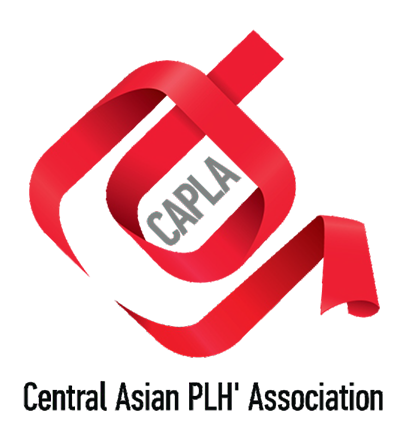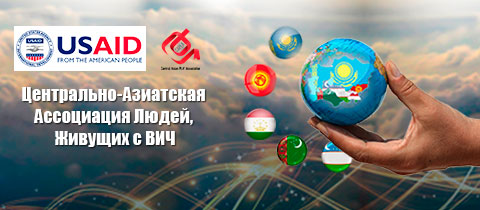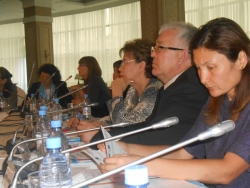The round table was made possible thanks to the support of the National Commission for Women and Family and Demographic Policy under the President of the Republic of Kazakhstan, the Central Asian Women's Network AMAL, the Multi-Country Office of the UN-Women in Central Asia and the Institute for War and Peace Reporting (IWPR) In Kazakhstan.
The roundtable brought together representatives of ministries and departments, Kazakh public and international organizations, media representatives to discuss the most important problems of women living with HIV in Kazakhstan and to develop strategic objectives to address them.
Recent statistics show that today in Kazakhstan the number of HIV-positive women and the rate of HIV infection among women exceed those for men. This trend is especially evident in the last 10 years: in 2014, 43.2% of HIV infected individuals were women, 56.8% were men, whereas in 2001 the estimated gender ratio was 20% and 80% respectively
Participants noted that the problem of feminization of HIV infection is not only medical but also social and there is direct dependence on the social status of women and the social roles that she occupies. In particular, among the main problems requiring urgent measures, the roundtable participants, noted the problems of insufficient legislative regulation of measures to prevent the spread of HIV, lack of information work among the population aimed at reducing the stigma and discrimination of HIV-positive people, especially women.
A significant part of the discussion was devoted to the need to improve the quality of special medical and social legal services for different risk groups and the need to develop effective measures to ensure uninterrupted access to free adapted milk formulas for children born to HIV positive mothers from birth to 1 year.
Along with the world practice, networks of women living with HIV, which are a unique tool in the fight against HIV / AIDS, have already been created and are working in Kazakhstan. The efforts of such women's organizations, their cooperation with state organizations and the introduction of international experience in HIV / AIDS prevention in Kazakhstan help people living with HIV and their relatives continue to live fully.
Summing up the discussion participants noted that today representatives of state agencies, medical structures and public organizations can work out measures that reduce the rate of feminization of HIV, but their realization is possible only through joint efforts of all participants in the process.

























